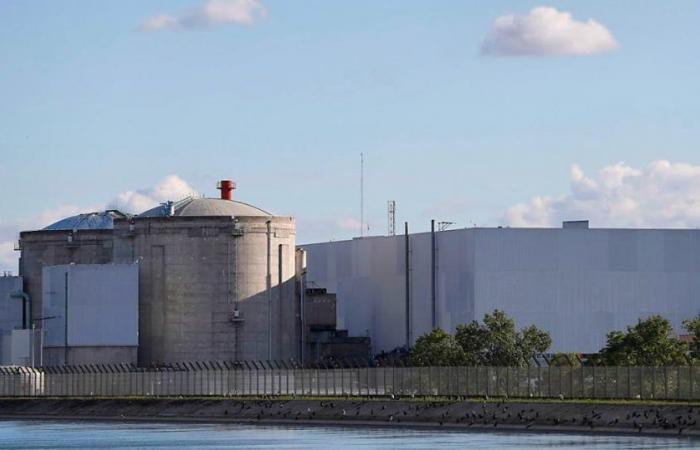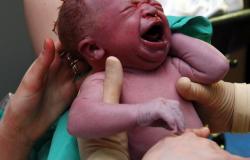
EDF presented on Tuesday a project for a recycling plant for weakly radioactive metals near the former Fessenheim nuclear power plant (Haut-Rhin) closed in 2020.
ATS
During a meeting to present a public debate, which should make it possible to amend the project if pitfalls appear, the former operator of the power plant proposed this “technocentre” project whose opening is planned for 2031.
The plant would remelt so-called “very weakly radioactive” metals to transform them into normally usable cast iron or steel ingots, with the radioactive part going to nuclear waste treatment facilities.
Very weakly radioactive metals are essentially rubble, earth or scrap metal, resulting from the dismantling or operation of nuclear installations or conventional industries using naturally radioactive materials.
This factory would require an investment of around 450 million euros and would employ 200 people, according to a presentation made by Laurent Jarry, director of the EDF Fessenheim site.
“The factory would produce ingots of around twenty kilos of conventional metals after a control process (…) which are intended for any use,” he detailed. “We plan to form partnerships with regional smelters so that they can transform these ingots for their customers.”
The site, which would occupy 15 hectares, would reuse buildings annexed to the power plant, which is in the process of being dismantled. “It would be a question of bringing activity to the territory, of creating jobs to the tune of around 200 and of participating in a revitalization (…) of the territory,” declared the president of the commission created for this specific debate, Jean-Louis Laure.
He acknowledged “a certain resentment, or at least a disappointment for some, that the nuclear power plant was shut down.” The closure of the Fessenheim nuclear power plant led to the destruction of around 2,000 direct and indirect jobs in this rural area, halfway between Colmar and Mulhouse.
Project revised downwards
A business zone project, supposed to compensate for these job losses, was significantly scaled back, and the mixed economy company supposed to support its creation turned into a fiasco. The EDF project is still far from being set in stone: a four-month public debate will be held from Thursday until February 7, to discuss industrial, socio-economic, health, environmental issues, etc.
It will then be necessary to obtain environmental authorization and an exemption from the public health code so that the ingots produced in the factory can be used.
ATS





